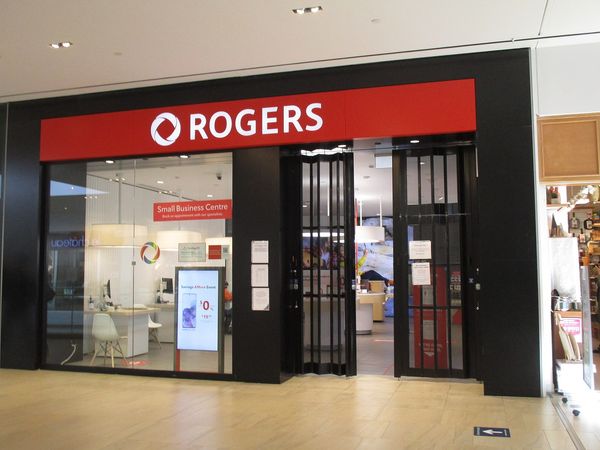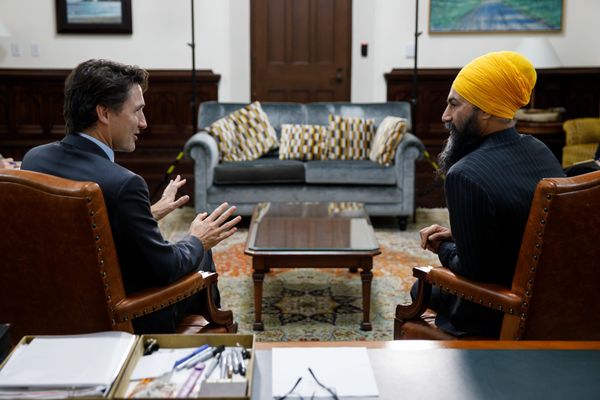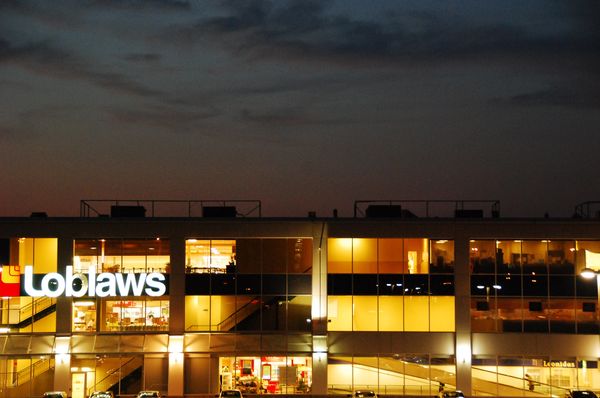Last week, Postmedia announced that the chair of their board of directors and founding CEO, Paul Godfrey, will step down from the role at the end of 2022. Godfrey, now 83 years old, has insisted that he isn’t retiring, but merely backing away from leadership and staying on as a “special adviser” to the board and CEO, presumably until he dies.
Godfrey’s replacement is Jamie Irving, the grandson of James K. Irving, who Forbes currently ranks as Canada’s 17th richest person, with a net worth of $4.1 billion USD. It’s not a stretch to say that the Irvings own a significant chunk of New Brunswick, employing about one in 12 people in the province. Jamie, who has a journalism degree from Columbia University, was appointed publisher of the Saint John Telegraph-Journal, then owned by his family, when he was 27. Jamie is also the chair of News Media Canada, Canada’s media lobby industry group.
Jamie’s appointment got little media coverage other than a Canadian Press wire story and an article at the National Post with no byline that read like a press release. The only substantive article about the leadership change was written by James Bradshaw and published at the Globe and Mail.
Postmedia is the biggest news media player in the country, owning more than 130 publications and websites. They own both daily newspapers in Edmonton, Calgary and Ottawa, and hundreds of smaller newspapers, including 61 news organizations in Ontario alone. Their influence over Canadians’ general knowledge and opinion is giant, they can make or break politicians and brands, and yet, a change in leadership was barely noticed by media outlets, including the public broadcaster. With so few media outlets outside the orbit of Postmedia, it’s no wonder that news about this appointment didn’t travel very far.
Irving was perhaps the obvious choice to succeed Godfrey. Of Postmedia’s current board members, who include various kinds of financial, real estate and HR people, and a former Progressive Conservative finance minister, Irving is the only one with Canadian newspaper publishing experience. Still, the choice is a troubling one.
In 2003, The Dominion published an article by Erin Steuter, a professor at Mount Allison University, that explored how Irving-owned newspapers covered several issues, and how their biases influenced their coverage. Steuter wrote, “Research on the Irvings’ media coverage of their own companies also reveals that the papers routinely publish their own press releases as news stories. For example this month’s Saint John Telegraph Journal contains an article entitled ‘Refinery Hires 1,000 for Maintenance Project’ which is almost identical to the Irving Oil press release on that topic entitled ‘1,000 Tradespeople “Turnaround” Saint John Refinery.’”
Fast forward more than a decade later, and journalist Bruce Livesey found a similar pattern. In a 2016 National Observer feature on the Irving family, Livesey cited a 2006 Senate Committee report into media concentration in Canada, noting, “To several of these witnesses, the media-industrial links within the Irving empire introduced an unhealthy bias into the news received by New Brunswickers.” The report also stated that “the (Irving) papers routinely publish their own press releases as news stories.”
In February, the Irvings sold nine newspapers to Postmedia. At the time, media critics — despite warning in the past that the history of Irving control over the kind of news printed in their newspapers amounted to controlling the media narrative — argued that the change would spell bad news for the quality and depth of content.
CBC interviewed journalism professors who were also worried about what the sale would mean for local news, including if these papers would now consolidate or borrow more content from the Postmedia chain. Steuter told CBC that Postmedia is “overtly in support of conservative governments, tends to not provide critical coverage of labour issues or environmental issues, and also has a track record of closing down a lot of the papers they buy and merging the content. So we’re going to see some consequences pretty quickly.”
Now, that same chain is under the command of an Irving, a potentially worst-of-both-worlds scenario.
In 2019, Canadaland ran a feature by Sean Craig about Postmedia’s intentional and aggressive shift to the right. Though the company’s PR representative refused to address journalists’ concern that there was increasing partisan meddling within the chain, Craig wrote, “What has happened, according to interviews with over 30 current employees and more than a dozen former employees — ranging from reporters to editors to corporate staff — is that Postmedia has given a directive for all of its papers to shift to the political right, in an unprecedented, centralized fashion. Many said that the changes have thus far been poorly executed and communicated inside the company, resulting in a cloud of uncertainty and confusion among reporters and editors across the chain.”
This editorial slant should concern Canadians. And now, with a dynasty hire whose family has hands in oil, shipping, forestry and other industries, which the Commons show at Canadaland has said runs New Brunswick “like a personal fiefdom,” we should be even more worried.
Who needs competition anyway?








Member discussion